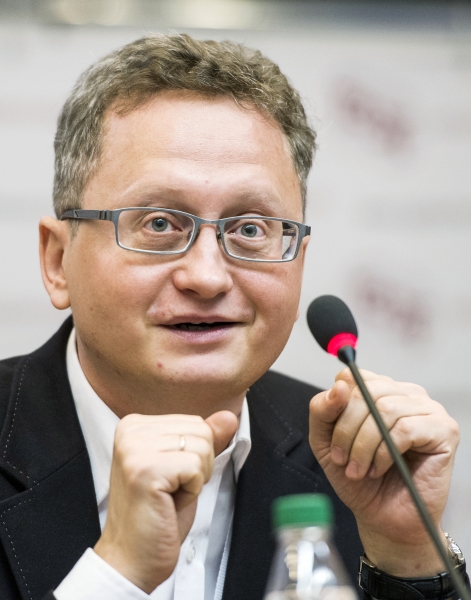XI NIS International Research-to-Practice Conference
Inspirational Speakers

International Speakers
Sergey Kosaretsky
Director of Pinsky Centre of General and Extracurricular Education of Institute of Education, HSE University, Russia
Sergey Kosaretsky is a Candidate of Psychological Sciences. He has authored over 100 research papers and taken a leading part in multiple research projects in the field of education. He performs as an expert in the following: – The Council for Children’s General Education and Extracurricular Education of the Committee on Education and Science of the State Duma of the Russian Federation; – The Inter-agency Coordination Council on Extracurricular Education and Child Upbringing; – The Council for the Implementation of the Rights and Social Protection of Pedagogical and Scientific Workers of the Committee on Education and Science of the State Duma of the Russian Federation. His research interests lie in the field of sociology of education, evidence-based educational policy, regional educational policy and educational inequity.
XI NIS International Research-to-Practice Conference, 24-25 October 2019: Keynote Speech
‘Behind the wall’: Opportunities and risks of extracurricular education for human capital development
The issue of extracurricular education has acquired its importance in the world that needs tackling the problems of socialization, prevention of asocial behaviour, and shaping the 21-century skills and identity. The research has revealed various effects of involvement in extracurricular programmes upon children’s intellectual and personal development, wellbeing and community social sustainability. Within the increasing dynamics of technological and cultural changes, extracurricular education (which is hardly centralized and standardized in most countries), demonstrates its openness to innovations, the flexibility of content renewal and adapting to learners’ individual needs compared with the basic education. However, certain risks need taking into consideration. First, it is the risk of growing educational inequity: the researchers point to the differences in the age of children’s involvement, the scale, terms and quality of extracurricular programmes and connect these issues to the differences in families’ cultural capital and socio-economic status. The features of children’s voluntary participation, choice and initiative emphasize the great role of family background in comparison to the preschool or basic education. As a result, the gap in the level of the academic results of basic education can be aggravated with a gap in the development of students’ competencies and social and emotional skills. The lack of standards and quality regulators for extracurricular education also entails particular risks: starting from the inefficient use of a child’s free time (his/her major resource) to harming a child’s psychological wellbeing with poor-quality programmes. Given this, the evidence-based data is essential to shape national and regional policies aimed at maximizing the impact and damping the risks of extracurricular education.
